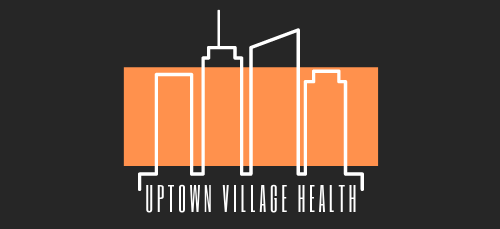Two weeks have passed, your monthly visit has not come yet. You took a pregnancy test, saw two red lines but you are not convinced. Took another pregnancy test kit and still saw two red lines. This should be enough to confirm that you are pregnant.
You are still hesitant and decided to talk to a medical professional. You undergo a transvaginal ultrasound. Congratulations, you finally confirmed how many weeks is the tiny being inside your body.
You are now embarking on a journey that includes considering the little one inside. Equipping yourself with relevant information will help decision making a lot easier.
Pregnancy
Pregnancy has three trimesters. The usual time frame is 40 weeks from the first day of your last period.
The first trimester is the first 12 weeks. You will experience many changes during this period, including hormonal changes. This can make you feel sick. You can experience nausea and vomiting. Usually, this disappears after the 12th week.
You will also experience food cravings during early pregnancy. Your sense of smell is stronger, too.
The 13th week up to 26 weeks is the second trimester of pregnancy. You will notice your belly is starting to grow. Your body will show outward looks, your pregnancy gets obvious.
The third trimester is from week 27 until delivery. A full-term baby can be born as early as 37 weeks and can be as late as 42 weeks.
Importance of healthy eating during pregnancy.
Healthy eating is vital to promote a healthy pregnancy. Food and drinks from a variety of sources will provide the nutrients, vitamins and minerals, not just for you, but including your developing baby needs.
What you intake during pregnancy is being shared directly with your baby. What goes into your mouth will support your baby’s health, growth, and development. Thus, it is important to eat the right food for you and your baby.
Your appetite fluctuates during pregnancy. Don’t take it negatively, instead let it be your guide on your food choices.
You need fruits and vegetables every day. Eat brightly coloured vegetables and fruits, at least one dark green and one orange (colour) each day.
Include grain products on your daily diet: rice, bread or pasta.
Eating fish and meat will also help you and your baby stay healthy. Choose lean meat. You can also have meat alternatives such as dried peas, lentils and tofu.
Note that any of these varieties of foods must be prepared and made with little or no added fat, sugar, and salt.
Also, drink milk to help your bones and teeth be healthy. Milk exclusively for pregnant women is available. These are fortified to provide vitamin D and calcium. Getting enough [of these] will build strong teeth and bones for your baby, too!
During your second and third trimesters, eat a little more food each day. An extra snack or small meal is enough for more calories to support the growth of your baby. Healthy snacks will help you keep energized.
10 foods to avoid
You might crave all the mouth-watering dishes. However, you have to be extra careful about your diet. Regulating your taste buds during your pregnancy will keep you and your baby away from harm.
Your risk of becoming ill from Listeria is high. Listeria is a type of bacteria that can cause serious foodborne illness during pregnancy.
Lower your chances of getting food poisoning. You should avoid these foods:
1. Raw and undercooked meat
Cook meat until it becomes soft and can be easily chewed.
2. Non-dried processed meats such as hotdogs, ham, bologna, turkey breast and roast beef.
3. Unpasteurized milk and its products
Pasteurization is a specialized process that involves heating at a specific temperature for a specific time and then followed by sudden cooling. This process kills the bacteria.
Always check the label of dairy products you choose.
4. Sushi or raw fish.
They contain salmonella and can cause nausea and fever.
5. Raw and undercooked eggs.
Eggs should be properly cooked. Make sure the eggs you eat must have firm yellow and white parts.
6. Seafood containing high mercury.
Mercury is a very lethal element. Sea fishes such as tuna, tilefish, swordfish, shark and canned albacore contain large quantities of mercury in their flesh.
7. Soft cheese.
Soft cheese like Feta, camembert or brie has more moisture content. This property makes it ideal for bacteria to grow and proliferate.
8. Refrigerated foods.
Foods in your refrigerator-that have been stored for long already lose their nutritive value. Eat freshly prepared and cooked foods. They are surely healthy and full of nutrition.
9. Papaya
It is said that papaya can induce abortion. raw and unripe papaya triggers uterine contradictions. Also, papaya has properties that restrict fetal development.
10. Pineapple
Pineapple may cause the cervix to weaken. this can lead to miscarriage or premature birth.
The moment you choose to continue your pregnancy, you want to have a healthy baby. And to achieve this, start nurturing the health of your little one while she is inside your body.
Getting prenatal care is favourable to guide your motherhood journey. Visit a walk in clinic Brantford. The online doctor can recommend vitamin and mineral supplements to make sure you are getting enough of them.
Since you are carrying another life inside you, take care of yourself. Avoid foods and activities that can harm you and your baby.
Being mindful of your eating habits is very important during pregnancy. Plan your meals and snacks. Take time to eat. This will make you feel good throughout your pregnancy journey.

